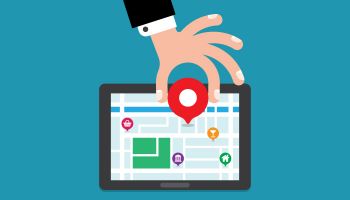What does your smart phone know about you?
Maybe it’s time to visit your settings button
- |
- Written by Dan Fisher
- |
- Comments: DISQUS_COMMENTS
 Obvious and mediocre won’t be found here—but “Why didn’t I think of that?” will! Challenging the banking status quo is Dan Fisher’s personal mission.
Obvious and mediocre won’t be found here—but “Why didn’t I think of that?” will! Challenging the banking status quo is Dan Fisher’s personal mission.
This blog concludes a three-blog arc the Dan “The Wombat” Fisher started about the impact on bankers of smart phones. Dan began with “Where’s my smart phone?!?!” and continued with “Can you last 24 hours without your smart phone?”
What does that smart phone you are surgically attached to know about your life? At first, you think to yourself, not much.
But then, after a little more thought, you begin to wonder …
Your life on a chip
Well, here it is ... and I am not talking about your contacts, financial information, pictures, and documents on the phone. You ought to know about that already, after all, you put that stuff on your device.
Here’s what I mean: Almost every move you make.
And that is putting it mildly. The culprit? Apps!
Yup, those free or inexpensive programs that are designed to make life fun and convenient and help find stuff are data mining your day. Awake or asleep, they know what you’ve been up to.
When you install these apps, you answer a couple of innocuous questions about push notices, preferences, GPS utilization, and such, and then you acknowledge the user agreement. You can’t get the app without giving up some data or at least your OK.
Question: How many of you have actually read the user agreement?
I thought so!
Just what have you agreed to?
What is a push notice?
It is more than a marketing message. In basic terms, a push message is something the app thinks you should know. Before the app can send you a notice, such as a recommendation to buy a product, it needs to know a “little” about you.
How do you think the app makers obtain that information?
GPS, for one, can give them your movements even though you have not entered in a particular location. The phone can know and a retailer can know where you are. Surfing in your browser is one way to be found out. Apps can keep a record of your purchasing habits, find a correlation from prior history, and send you a note.
Simple devices with simple solutions can create very complicated outcomes—however well intended.
Here’s an educational exercise. Go to the settings button on your phone, look under notices, and check it out what you’ve agreed to.
You will be surprised to find out what you have enabled.
Next is location services. What apps do you allow to track you?
Cookies? Do you allow them?
Have you enabled the “Do not track” option?
Check out your browser settings. Read the spotlight suggestions and do not track options (that is if you have an iPhone). Both of these give Apple the ability to take your data and “use it against you,” to steal a phrase.
Oh, heck, you say, “So what’s a little data? They’re going to get it anyway!”
A pocket-sized dilemma
What should you do? The answer may not be as easy as you think.
After all, you may have come to enjoy or expect the information you receive because it relieves you from having to remember something.
But then, what did we do before smart phones?
Is there a personal countermeasure to technology? Yes, there is. Take a simple self-assessment of your lifestyle habits and ask yourself what you think should be private and what doesn’t matter to you.
Then, let your fingers do the walking through the settings forest. It may take you a while to figure out where all of this stuff is.
Food for thought: I like to eat my cookies! Chips and all! —The Wombat!
Tagged under Retail Banking, Blogs, Beyond the Bank, Channels, Feature, Feature3,














